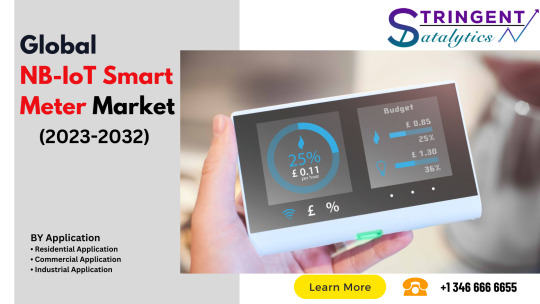#Quantitative Market Research
Explore tagged Tumblr posts
Text
Quantitative Market Research in the Healthcare Industry
In the ever-evolving landscape of healthcare, decisions must be backed by accurate data and actionable insights. Quantitative market research in healthcare emerges as an indispensable tool, empowering stakeholders with numerical data to make informed choices. From understanding patient preferences to identifying market trends, quantitative research plays a pivotal role in improving healthcare outcomes and driving business success.
This blog delves deep into the essentials of quantitative market research in healthcare, exploring its importance, methodologies, applications, challenges, and future trends.
Understanding Quantitative Market Research in Healthcare
Quantitative market research involves collecting numerical data to identify patterns, test hypotheses, and make data-driven decisions. In healthcare, this research focuses on understanding consumer behaviors, measuring service effectiveness, and predicting future trends.
Key characteristics include:
Structured data collection: Surveys, polls, and questionnaires.
Statistical analysis: Tools to interpret data patterns.
Objective insights: Numerical evidence supports conclusions.
Importance of Quantitative Market Research in Healthcare
Healthcare is an industry where precision matters. Quantitative research offers:
Data-Driven Decision Making: Hospitals, pharmaceutical companies, and policymakers rely on statistics to make critical choices.
Patient-Centric Care: Quantitative insights help understand patient needs, improving care delivery and satisfaction.
Market Trends Analysis: Identifies emerging technologies, treatments, and competitive positioning.
Regulatory Compliance: Ensures adherence to stringent healthcare standards and policies.
Core Methodologies in Quantitative Healthcare Research
Quantitative market research leverages various methodologies tailored to healthcare needs. Below are the most prominent methods:
1. Surveys and Questionnaires
Description: Structured tools with multiple-choice questions or Likert scales.
Applications: Patient satisfaction surveys, feedback on new treatments.
Advantages: Cost-effective, scalable, and time-efficient.
2. Longitudinal Studies
Description: Studies conducted over an extended period to observe trends.
Applications: Tracking chronic disease management or medication adherence.
Advantages: Provides in-depth insights into changes over time.
3. Experimental Research
Description: Controlled environments to test the impact of variables.
Applications: Clinical trials for drug efficacy or behavioral experiments.
Advantages: High accuracy and reliability.
4. Data Analytics and Secondary Research
Description: Analyzing pre-existing datasets like electronic health records (EHRs) or government reports.
Applications: Population health management, cost optimization studies.
Advantages: Saves time and leverages vast datasets.
Applications of Quantitative Research in Healthcare
Quantitative market research serves diverse purposes across the healthcare ecosystem:
1. Pharmaceutical Research
Market sizing for new drugs.
Tracking the success of launched products.
Evaluating consumer perceptions of drug safety and efficacy.
2. Patient Experience and Satisfaction
Measuring satisfaction with healthcare facilities.
Identifying gaps in patient care delivery.
3. Health Technology and Devices
Evaluating the usability of wearable devices and apps.
Predicting adoption rates for telemedicine platforms.
4. Healthcare Policy and Strategy
Assessing the impact of public health campaigns.
Supporting policy decisions with population-wide statistical data.
5. Brand Positioning and Competitor Analysis
Benchmarking against competitors in terms of services, technology, and innovation.
Tracking brand awareness and loyalty metrics.
Challenges in Conducting Quantitative Healthcare Research
While quantitative research is essential, it is not without its challenges. Key obstacles include:
1. Data Privacy Concerns
Adhering to regulations like HIPAA and GDPR to protect patient information.
2. Sampling Bias
Ensuring representative samples for accurate generalizations.
3. Data Accuracy
Minimizing errors in data collection, especially when participants self-report.
4. High Costs
Implementing large-scale surveys or clinical trials can be resource-intensive.
5. Integration of Data Sources
Combining data from disparate systems like EHRs, patient surveys, and administrative records.
Best Practices for Conducting Quantitative Market Research in Healthcare
To overcome challenges and achieve reliable results, researchers must adhere to these best practices:
Define Clear Objectives Start with precise research goals to guide the methodology and analysis.
Ensure Representative Sampling Use diverse and inclusive sampling techniques to avoid bias.
Leverage Technology Use advanced tools for data collection and analysis, such as AI and machine learning.
Focus on Data Security Encrypt sensitive data and follow stringent privacy protocols.
Collaborate with Experts Work with clinicians, statisticians, and technology professionals for comprehensive insights.
Iterative Testing Validate findings through pilot studies or repeat surveys to ensure reliability.
The Future of Quantitative Research in Healthcare
Healthcare is rapidly evolving, and so are the methods of market research. The future of quantitative healthcare research will likely be shaped by:
1. Integration of Big Data
Massive datasets from wearables, EHRs, and IoT devices will enrich research quality.
2. AI-Driven Insights
Machine learning algorithms will enable predictive analytics, uncovering trends before they emerge.
3. Real-Time Data Collection
Advances in technology will allow real-time feedback from patients and healthcare providers.
4. Patient-Centric Research
Empowering patients to actively participate in research through digital platforms and mobile apps.
5. Globalization of Healthcare Studies
Cross-border research initiatives will become common, offering broader insights into global health challenges.
Conclusion
Quantitative market research in healthcare is a cornerstone of innovation and progress. By providing accurate, actionable data, it supports better patient care, enhances business strategies, and fosters advancements in medical technology. However, it requires meticulous planning, adherence to ethical standards, and the integration of cutting-edge tools to navigate its inherent challenges.
At Philomath Research, we specialize in delivering robust and reliable healthcare insights through quantitative research. Whether you’re a pharmaceutical company, healthcare provider, or policymaker, we can help you unlock the power of data to achieve your goals.
Contact us today to learn how our expertise can drive your healthcare research initiatives forward.
FAQs
1. What is quantitative market research in healthcare?
Quantitative market research in healthcare involves the collection and analysis of numerical data to understand consumer behaviors, measure service effectiveness, and predict trends. It focuses on structured methods like surveys, longitudinal studies, and data analytics to provide actionable insights that support decision-making in the healthcare sector.
2. Why is quantitative research important for the healthcare industry?
Quantitative research is essential in healthcare as it:
Facilitates data-driven decision-making for hospitals, pharmaceutical companies, and policymakers.
Enhances patient-centric care by understanding preferences and satisfaction.
Identifies emerging market trends and evaluates the effectiveness of treatments and technologies.
3. What are the primary methods used in quantitative healthcare research?
Common methods include:
Surveys and Questionnaires: For patient feedback and satisfaction metrics.
Longitudinal Studies: To observe changes over time, like chronic disease management.
Experimental Research: Controlled clinical trials to test drug efficacy.
Data Analytics and Secondary Research: Analysis of datasets like EHRs and government health reports.
4. How does quantitative research contribute to pharmaceutical advancements?
It helps pharmaceutical companies by:
Determining market size for new drugs.
Measuring the success of launched products.
Evaluating consumer perceptions regarding drug safety and effectiveness.
5. What role does quantitative research play in patient care improvement?
Quantitative research identifies gaps in care delivery, measures patient satisfaction, and tracks health outcomes, enabling healthcare providers to implement targeted improvements that enhance the overall patient experience.
6. What are the challenges of conducting quantitative research in healthcare?
Major challenges include:
Data Privacy Concerns: Adhering to regulations like HIPAA and GDPR.
Sampling Bias: Ensuring a diverse and representative sample.
Data Accuracy: Avoiding errors in self-reported data.
High Costs: Managing the expenses of large-scale studies or clinical trials.
Data Integration: Combining disparate data sources like EHRs and patient surveys.
7. How can researchers ensure reliable results in healthcare studies?
Researchers can ensure reliability by:
Defining clear objectives.
Using representative and inclusive sampling.
Leveraging technology like AI and machine learning.
Focusing on data security and ethical compliance.
Collaborating with experts for well-rounded insights.
8. What technologies are shaping the future of quantitative healthcare research?
Emerging technologies include:
Big Data Integration: Leveraging datasets from wearables, IoT, and EHRs.
AI-Driven Analytics: Machine learning for predictive insights and trend analysis.
Real-Time Data Collection: Tools for immediate patient feedback.
Patient-Centric Platforms: Empowering individuals to participate in research via apps.
9. What are the benefits of longitudinal studies in healthcare research?
Longitudinal studies provide in-depth insights into trends and patterns over time, such as medication adherence or disease progression, offering valuable data for long-term healthcare strategies.
10. How does Philomath Research support healthcare organizations in quantitative research?
Philomath Research delivers customized quantitative research solutions tailored to healthcare needs. We specialize in surveys, data analytics, and experimental studies, providing actionable insights that drive better decision-making for pharmaceutical companies, healthcare providers, and policymakers.
11. What are some real-world applications of quantitative healthcare research?
Key applications include:
Evaluating the effectiveness of public health campaigns.
Measuring patient satisfaction and experience.
Assessing the usability of healthcare technologies and devices.
Conducting competitor analysis and market positioning studies.
12. Why is data security important in healthcare research?
Data security is critical to protect sensitive patient information, maintain compliance with privacy regulations, and build trust with participants. Encryption, anonymization, and strict access controls are essential for safeguarding data integrity.
13. How does quantitative research help in healthcare policy-making?
Quantitative research supports policymakers by providing population-wide statistical data, evaluating the impact of public health campaigns, and identifying areas for policy intervention to improve overall healthcare outcomes.
#healthcare market research#quantitative market research#healthcare services#healthcare provider#quantitative methods
0 notes
Text
How Quantitative Market Research Companies Avoid Bad Data
Quantitative market research firms prevent bad data through rigorous data collection, validation, and cleaning processes. By using well-designed survey tools, advanced sampling techniques, and automated validation, these companies minimize biases and errors. They also employ strategies like pilot testing, real-time monitoring, and data imputation to ensure data quality, allowing businesses to gain reliable insights for better decision-making.
0 notes
Text





Market Research Firms - Track Opinion Research
0 notes
Text
Precision Insights: Expert Quantitative Market Research Services
Our Quantitative Market Research Services help you quickly gather insights from our panellists and understand the changing consumer behaviour. Using our comprehensive services, we find the answers to the most of your questions! Follow this link to know more https://insighttellers.com/services/quantitative-research-market

#Quantitative Market Research Services#Qualitative Research#Translation#Survey Programming#Data Collection & Analysis#Secondary Research#Panel Aggregation#Contracted Work
2 notes
·
View notes
Text
Quantitative & Qualitative: A Perfect Pair for Complete Insights

When you need the full picture, why settle for one? Quantitative market research services give you the data, qualitative market research services give you the depth. Together, they make the perfect pair for comprehensive insights.
0 notes
Text
PR Agency
SPAG is a leading PR agency delivering innovative communication strategies tailored to healthcare, life sciences, and corporate sectors. We specialize in building strong brand narratives, media relations, and stakeholder engagement. Our expertise ensures impactful campaigns that drive visibility, credibility, and meaningful connections for businesses across diverse industries.
#social media agency#marketing and public relations#integrated marketing and communications#SEO Services#seo marketing#social media marketing agency#brand marketing#crisis management#digital marketing services#research and data analysis services#pr agency#strategic positioning marketing#content curation services#content creation and social media#social digital marketing#website and digital marketing#quantitative data analysis#content marketing strategy#content marketing and strategy
0 notes
Text
Spade Survey is a full-service market research firm in Mali that offers both qualitative and quantitative market research solutions.Spade Survey understands the demands of clients in the Malian market thanks to its extensive experience dealing with large organisations, advertising agencies, and research firms in Mali
#market research firm in Mali#research firms in Mali#market research services#quantitative research organisation#market research organisations
0 notes
Text
What Is Trend Analysis in Research? Types, Methods, and Examples
Explore the essence of trend analysis in research, encompassing its diverse types, methodologies, and real-world examples. Unravel the significance of tracking trends to glean insights and make informed decisions in various fields.
#Trend analysis#Research trends#Analyzing trends#Trend analysis definition#Types of trend analysis#Methods of trend analysis#Conducting trend analysis#Utilizing trend data#Research trend identification#Trend spotting#Trend forecasting#Trend analysis techniques#Trend analysis tools#Trend analysis models#Market trend analysis#Statistical trend analysis#Qualitative trend analysis#Quantitative trend analysis#Longitudinal trend analysis#Cross-sectional trend analysis#Trend analysis in research#Trend analysis in data science#Trend analysis in social sciences#Trend analysis in economics#Trend analysis in business#Trend analysis in marketing#Trend analysis in finance#Trend analysis in healthcare#Trend analysis in technology#Trend analysis examples
0 notes
Text

Qualitative research is a sophisticated methodology that explores the complexities of people's attitudes, motivations, and actions. Qualitative research provides rich contextual insights that are not possible to obtain from quantitative data alone. Methods that are used to achieve this include focus groups, interviews, and observations. It provides a thorough grasp of individuals or groups by examining the underlying causes of behaviours and perceptions. Businesses can ensure alignment with the needs and preferences of their target audience by making informed decisions regarding product development, marketing strategies, and organisational improvements thanks to this depth of understanding.
Contact us to know more about it.
Visit- https://snwareresearch.com/contact/
#qualitative research#qualitative analysis#qualitative data#quantitative research#market research#research services#focus group#online panels#market insights
0 notes
Text
#Insight Manager#UNICEF UK#London#Market Research#Qualitative Research#Quantitative Research#Desk Research#Data Analysis#Insight Analysis#Evidence-based Decisions#External Research Projects#Audience Understanding#Innovation#Professional Relationships#Collaboration#Online Application#Permanent Role#Part-time Opportunity#Flexible Working#Office Space#Training#Learning Opportunities#Diversity#Equality#Inclusion#Flexible Working Requirements#Criminal Records Check#Charity#Children's Rights.
0 notes
Text
150 Days of Research: Choosing the Best Market Methodology
1. Introduction to Market Research Methodologies
Market research is the cornerstone of effective business strategy, providing the critical insights needed to make informed decisions. Whether you are launching a new product, entering a new market, or refining your marketing strategy, market research can guide you in the right direction. However, the success of your research hinges on selecting the most appropriate methodology.
A market research methodology refers to the structured approach used to collect, analyze, and interpret data. The choice of methodology can greatly influence the quality of your findings. With numerous methods available, from quantitative surveys to qualitative interviews, understanding their nuances is crucial. This guide will walk you through the essential methodologies, helping you choose the best approach based on your business needs.
2. Importance of Selecting the Right Market Research Methodology
The right market research methodology acts as a bridge between your business objectives and actionable insights. Here’s why choosing the right methodology is crucial:
Accurate Data Collection: The right approach ensures that data collected is relevant, accurate, and aligned with your research goals, providing a clear direction for decision-making.
Understanding Customer Needs: By delving into consumer behaviors and preferences, you can tailor your products and services to better meet market demands.
Risk Mitigation: Thorough research helps identify potential risks and challenges, enabling proactive adjustments that save time and resources.
Competitive Advantage: Staying informed about market trends and consumer needs allows businesses to stay ahead of the competition and make strategic moves.
However, a poor choice of methodology can lead to misleading results, wasted resources, and misguided strategies. Thus, careful consideration of your research needs is imperative when selecting a methodology.
3. Types of Market Research Methodologies
Market research methodologies can be broadly divided into three categories: Quantitative, Qualitative, and Mixed-Methods. Each type serves distinct purposes and offers unique insights.
Quantitative Research
Quantitative research focuses on collecting numerical data through structured methods. This data is typically used for statistical analysis, providing insights that can be generalized across larger populations. It is best suited for answering questions like “how many,” “how much,” and “how often.”
Characteristics of Quantitative Research:
Objective: Measures variables numerically to test hypotheses and quantify behaviors, opinions, or market conditions.
Methods: Surveys, structured questionnaires, online polls, and data analytics.
Advantages: Provides measurable data, allows for statistical analysis, and is cost-effective for large sample sizes.
Ideal For: Measuring customer satisfaction, market segmentation, tracking trends, and validating product concepts.
Example Use Case: A company launching a new product might use quantitative research to determine the market size and potential demand by conducting large-scale surveys.
Qualitative Research
Qualitative research seeks to explore deeper insights into consumer behavior, motivations, and attitudes. It is unstructured and aims to understand the underlying reasons behind consumer actions, focusing on the “why” rather than the “how much.”
Characteristics of Qualitative Research:
Objective: Explores complex consumer emotions, motivations, and perceptions through open-ended questions.
Methods: Focus groups, in-depth interviews, case studies, and observational studies.
Advantages: Provides rich, contextual data that quantitative methods might miss, offering a deeper understanding of consumer behavior.
Ideal For: Concept testing, brand positioning, understanding customer journeys, and exploring new ideas.
Example Use Case: A fashion brand uses qualitative research through focus groups to explore consumer perceptions of a new clothing line, gaining insights that go beyond sales data.
Mixed-Methods Research
Mixed-methods research combines quantitative and qualitative approaches, providing a more comprehensive view by leveraging the strengths of both. It allows researchers to corroborate findings and capture a holistic picture of the research problem.
Characteristics of Mixed-Methods Research:
Objective: Offers a balanced approach, addressing both numerical trends and contextual understanding.
Methods: Sequential or concurrent use of surveys, interviews, and observational studies.
Advantages: Captures broad trends with quantitative data while exploring deeper insights with qualitative methods.
Ideal For: Complex research questions requiring both numerical data and in-depth understanding.
Example Use Case: A technology company exploring user experience might use quantitative surveys to measure satisfaction and follow up with qualitative interviews for detailed feedback.
4. Popular Market Research Techniques
Understanding popular research techniques is crucial in selecting the best methodology for your study. Here are some widely used market research techniques and their practical applications:
Surveys
Purpose: Surveys are used to collect quantitative data from a large audience. They are ideal for measuring customer satisfaction, market demand, and product feedback.
Strengths:
Cost-effective and quick to administer.
Can reach a large audience through online platforms.
Provides statistically significant data for analysis.
Ideal For: Market sizing, tracking brand awareness, and customer feedback.
Example: An electronics company conducts online surveys to gauge customer satisfaction after a new product launch.
Focus Groups
Purpose: Focus groups gather qualitative insights through guided group discussions. They provide a platform for participants to share their views, often revealing underlying motivations.
Strengths:
Interactive and dynamic, offering real-time feedback.
Allows exploration of complex topics.
Reveals group dynamics and shared sentiments.
Ideal For: Concept testing, exploring brand perceptions, and ad testing.
Example: A beverage company uses focus groups to test new packaging designs, gathering feedback on appeal and usability.
In-Depth Interviews
Purpose: In-depth interviews involve one-on-one conversations with participants, allowing for a deep dive into personal opinions and experiences.
Strengths:
Provides detailed insights into individual perspectives.
Allows for probing and clarification of responses.
Suitable for sensitive or complex topics.
Ideal For: B2B research, executive insights, and exploring niche markets.
Example: A healthcare company conducts in-depth interviews with doctors to understand their preferences for medical devices.
Observational Research
Purpose: Observational research involves watching consumers in their natural environment to study behaviors without direct interaction.
Strengths:
Captures authentic behavior without bias.
Provides context-rich data.
Effective for studying user experience and store interactions.
Ideal For: Retail studies, user experience research, and consumer behavior analysis.
Example: A retail brand observes customers navigating its store to identify pain points in the shopping experience.
Secondary Research
Purpose: Secondary research analyzes existing data from reports, studies, and publications to gather insights without conducting primary research.
Strengths:
Cost-effective and quick.
Leverages existing knowledge and data.
Useful for market landscape analysis and competitor research.
Ideal For: Industry analysis, benchmarking, and identifying market trends.
Example: A tech startup uses secondary research to analyze industry reports and identify market gaps.
Ethnographic Research
Purpose: Ethnographic research immerses researchers in the participant’s environment to observe behaviors, cultures, and interactions.
Strengths:
Provides deep cultural and social insights.
Captures real-world context.
Uncovers behaviors that other methods might miss.
Ideal For: Exploring niche consumer segments and understanding cultural influences.
Example: A home appliance company uses ethnographic research to observe how families use kitchen devices in their homes.
Experimental Research
Purpose: Experimental research tests hypotheses under controlled conditions, establishing cause-and-effect relationships.
Strengths:
Provides precise, controlled data.
Suitable for product testing and pilot studies.
Validates the impact of changes or interventions.
Ideal For: A/B testing, product trials, and marketing experiments.
Example: A cosmetics brand conducts A/B testing to compare the effectiveness of two ad campaigns.
5. Factors to Consider When Choosing a Market Research Methodology
Choosing the right market research methodology involves evaluating several critical factors:
Research Objectives
Clearly defining your research goals is the first step. Are you trying to understand customer satisfaction, measure market potential, or test a new concept? Your objectives will directly influence the choice of methodology.
Target Audience
Understanding your target audience is essential. Quantitative methods like surveys are suitable for large, diverse populations, while qualitative methods like interviews are better for niche segments requiring deeper exploration.
Budget Constraints
Your budget can significantly impact the choice of methodology. Quantitative methods such as surveys are often more cost-effective for large samples, while qualitative methods like in-depth interviews can be more resource-intensive.
Time Frame
The urgency of your research results will affect your choice. Techniques like online surveys and secondary research offer quick insights, while methods like ethnographic research may require extended time periods.
Data Accuracy and Reliability
The reliability and accuracy of data depend on your chosen method. Quantitative methods provide statistical reliability, while qualitative methods offer depth and context, though they may lack generalizability.
6. Common Challenges in Choosing the Right Market Research Methodology
Selecting the correct methodology is not without its challenges. Common pitfalls include:
Misalignment with Objectives: Choosing a method that doesn’t align with your research goals can lead to irrelevant or misleading data.
Limited Resources: Budget and time constraints can restrict access to comprehensive research methods.
Bias and Error: Methods like focus groups can introduce moderator bias, while surveys may suffer from respondent bias.
Data Overload: Combining too many methodologies without a clear strategy can result in data overload, complicating analysis.
7. Case Studies: Real-World Examples of Effective Methodology Selection
Case Study 1: Tech Startup Exploring Market Demand
A tech startup needed to understand the market demand for its new app. They initially used secondary research to analyze existing market trends, followed by quantitative surveys targeting potential users. The mixed-method approach provided both broad market insights and specific user feedback, guiding product development.
Case Study 2: Retail Brand Testing New Packaging
A retail brand wanted to test new packaging designs. They employed focus groups to gather qualitative feedback on aesthetics and usability. Insights from the focus group helped refine the packaging, enhancing its appeal before a larger product rollout.
8. Key Takeaways from 150 Days of Research
Align Methodology with Objectives: The most critical step is ensuring your chosen methodology aligns with your research goals.
Leverage Mixed Methods for Comprehensive Insights: Combining quantitative and qualitative approaches often yields the most balanced and actionable insights.
Consider Constraints: Be realistic about your budget, time, and resources when selecting a methodology.
Adapt to Your Audience: Tailor your research approach to the needs and characteristics of your target audience.
Conclusion
Choosing the right market research methodology is an art and science that requires careful consideration of your business objectives, audience, and constraints. With insights drawn from 150 days of intensive research, this guide provides a comprehensive overview to help you navigate the complexities of market research. By aligning your methodology with your goals, you can unlock valuable insights that drive business success.
For more expert guidance on market research methodologies tailored to your specific needs, connect with us at Philomath Research. Let us help you make data-driven decisions that propel your business forward.
FAQs
1. What is market research methodology?
Market research methodology refers to the structured approach used to collect, analyze, and interpret data about markets, consumers, and competitors. It involves choosing the right methods and techniques to gather insights that help businesses make informed decisions. Common methodologies include quantitative research, qualitative research, and mixed-methods research.
2. Why is it important to choose the right market research methodology?
Choosing the right market research methodology is crucial because it ensures that the data collected is relevant, accurate, and aligned with your research objectives. The right methodology helps in understanding customer needs, mitigating risks, staying competitive, and making informed business decisions.
3. What are the main types of market research methodologies?
The main types of market research methodologies are:
Quantitative Research: Focuses on numerical data and statistical analysis to measure variables and test hypotheses. Methods include surveys and structured questionnaires.
Qualitative Research: Explores deeper insights into consumer behavior, motivations, and attitudes through open-ended questions. Methods include focus groups and in-depth interviews.
Mixed-Methods Research: Combines quantitative and qualitative approaches to provide a comprehensive view of the research problem.
4. What are some popular market research techniques?
Popular market research techniques include:
Surveys: Collect quantitative data from a large audience.
Focus Groups: Gather qualitative insights through guided group discussions.
In-Depth Interviews: Conduct one-on-one conversations for detailed insights.
Observational Research: Observe consumers in their natural environment.
Secondary Research: Analyze existing data from reports and publications.
Ethnographic Research: Immerse researchers in participants’ environments to study behaviors and cultures.
Experimental Research: Test hypotheses under controlled conditions to establish cause-and-effect relationships.
5. How do I choose the best market research methodology for my needs?
To choose the best market research methodology, consider the following factors:
Research Objectives: Define your goals and what you aim to achieve.
Target Audience: Understand the characteristics and needs of your target audience.
Budget Constraints: Evaluate the costs associated with each methodology.
Time Frame: Consider the time available for conducting research and obtaining results.
Data Accuracy and Reliability: Assess the method’s ability to provide reliable and accurate data.
6. What are some common challenges in selecting the right market research methodology?
Common challenges include:
Misalignment with Objectives: Choosing a method that doesn’t align with your research goals can lead to irrelevant results.
Limited Resources: Budget and time constraints can restrict access to comprehensive research methods.
Bias and Error: Some methods may introduce biases or errors that affect the validity of the data.
Data Overload: Using too many methodologies can result in data overload, making analysis complex.
7. What are the key takeaways from researching market research methodologies?
Key takeaways include:
Align Methodology with Objectives: Ensure that your chosen methodology matches your research goals.
Leverage Mixed Methods: Combining quantitative and qualitative approaches often provides the most comprehensive insights.
Consider Constraints: Be realistic about your budget, time, and resources when selecting a methodology.
Adapt to Your Audience: Tailor your research approach to the needs and characteristics of your target audience.
8. Where can I find more expert guidance on market research methodologies?
For more expert guidance on market research methodologies tailored to your specific needs, connect with Philomath Research. Our team is dedicated to providing top-tier market research solutions that help businesses make data-driven decisions. Visit our website at Philomath Research for more information.
#market research companies#market research methodology#qualitative market research#quantitative market research#online survey#primary market research
0 notes
Text
Expert Quantitative Data Analysis for Informed Business Decisions
Insights Opinion provides expert quantitative data analysis services, helping businesses make informed decisions based on solid numerical data. Their quantitative market research services deliver reliable, statistically significant insights through large-scale surveys and advanced data modeling techniques. These services help you understand market trends, customer preferences, and business opportunities with precision. Partner with Insights Opinion to turn data into actionable strategies for success.
0 notes
Text

Quantitative Market Research - Track Opinion
Track Opinion provides quantitative market research services to help businesses make informed decisions. We use surveys, polls, and other data collection methods to gather insights into customer behavior, preferences, and attitudes. Our team of experienced researchers can help you design, implement, and analyze your quantitative market research project.
#qualitative market research#qualitative and quantitative market research#qualitative and quantitative research in marketing#quantitative market research#survey programming companies
1 note
·
View note
Text
Qualitative Research for Comprehensive Data Insights
Numerous academic fields, including social science, market research, and psychology, heavily rely on qualitative analysis. Qualitative analysis primary purpose is to describe the subject in detail so that researchers can better understand its intricacies and nuances. When context and subjective information are essential for undertaking social, cultural, or psychological research, this method is especially helpful. Follow this link to know more https://insighttellers.com/blog/qualitative-research-for-comprehensive-data-insights

#Market Research agency#top market research company#qualitative market research company#quantitative research company#data collection company#top market research companies#quantitative marketing research#desk research#secondary research
0 notes
Text
Characteristics of Quantitative Descriptive Research

Quantitative descriptive research focuses on collecting numerical data to objectively analyze and summarize patterns or trends. Often used in quantitative market research services, it emphasizes generalizability to larger populations, ensuring replicability and consistency of findings. This method provides predictability by identifying measurable patterns for data-driven decision-making.
0 notes
Text
NB-IoT Smart Meter Market

#NB-IoT Smart Meter Market Overview:#Global NB-IoT Smart Meter Market research provides insights into consumer behavior#industry trends#and market competition through the use of various research techniques#including surveys#interviews#and data analysis. The industry serves a wide range of clients#including businesses#government agencies#and non-profit organizations. NB-IoT Smart Meter Market is highly diverse#with a range of services and specialties#including quantitative and qualitative research#brand research#product testing#customer satisfaction research#and competitive analysis.
0 notes